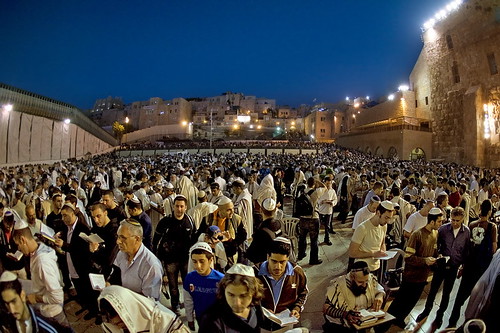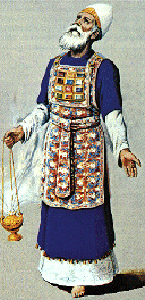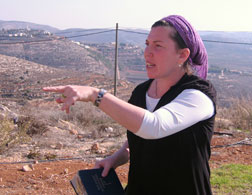 I'm in the middle of reading A Connecticut Yankee in King Arthur's Court (full text available online here), by Mark Twain. For whatever reason, I avoided reading "literature" during high school, probably because someone was trying to force it on me. But here, I'll read pretty much whatever I can get my hands on. Rena had a copy of Huck Finn, so I went back to it, and it was much better than I remembered. That got me on a "Mark Twain" kick - so I had my sister-in-law pick up a collection of Twain's short stories (not as good) and A Connecticut Yankee, which so far is delightful. Twain's wit, his storytelling, and his accurate depiction of society speaks volumes even today.
I'm in the middle of reading A Connecticut Yankee in King Arthur's Court (full text available online here), by Mark Twain. For whatever reason, I avoided reading "literature" during high school, probably because someone was trying to force it on me. But here, I'll read pretty much whatever I can get my hands on. Rena had a copy of Huck Finn, so I went back to it, and it was much better than I remembered. That got me on a "Mark Twain" kick - so I had my sister-in-law pick up a collection of Twain's short stories (not as good) and A Connecticut Yankee, which so far is delightful. Twain's wit, his storytelling, and his accurate depiction of society speaks volumes even today.For those of you not familiar with the story, read the Wikipedia synopsis - but suffice it to say that a 19th century American finds himself back in 6th century England - and he proceeds to introduce numerous societal and technological innovations common to his newfound home. He institutes a system of education, including a program of religious practices. (I'm highlighting the section I find most thought-provoking.)
I had started a teacher-factory and a lot of Sunday-schools the first thing; as a result, I now had an admirable system of graded schools in full blast in those places, and also a complete variety of Protestant congregations all in a prosperous and growing condition. Everybody could be any kind of a Christian he wanted to; there was perfect freedom in that matter. But I confined public religious teaching to the churches and the Sunday-schools, permitting nothing of it in my other educational buildings. I could have given my own sect the preference and made everybody a Presbyterian without any trouble, but that would have been to affront a law of human nature: spiritual wants and instincts are as various in the human family as are physical appetites, complexions, and features, and a man is only at his best, morally, when he is equipped with the religious garment whose color and shape and size most nicely accommodate themselves to the spiritual complexion, angularities, and stature of the individual who wears it; and, besides, I was afraid of a united Church; it makes a mighty power, the mightiest conceivable, and then when it by and by gets into selfish hands, as it is always bound to do, it means death to human liberty and paralysis to human thought.Twain's comment about "spiritual wants and instincts" strikes a chord in me, and reminds me of a comment in Rashi found in Parshat Pinchas. When, at the conclusion of forty years of wandering in the desert God instructs Moshe to climb up Mount Aravim, view the Land of Israel and return to his Maker, Moshe makes one final request:
Moshe asks God not to leave the people without a leader. Rather, God must appoint Moshe's replacement before his death so as not to leave the people with an vacuum they would find impossible to fill. (sound like any group you've heard of?) Yet, Rashi wonders why Moshe refers to the God as "the God of the spirits" specifically in this context. Rashi answers:יִפְקֹד ה', אֱלֹקי הָרוּחֹת לְכָל-בָּשָׂר, אִישׁ, עַל-הָעֵדָה.Let the LORD, the God of the spirits of all flesh, set a man over the congregation
אמר לפניו: רבש"ע! גלוי וידוע לפניך דעתו של כל אחד ואחד ואינן דומין זה לזה, מנה עליהם מנהיג שיהא סובל כל אחד ואחד לפי דעתו:[Moshe] said before [God]: Master of the Universe! It is reveals and known before You the attitude of each and every individual, and they are not like each-other. Appoint over them a leader that can suffer each one according to his attitude.
While Orthodoxy rejects the legitimacy of what the Jewish community commonly refers to as "denominations", differences among spiritual practice and devotion most certainly remain - as well they should.
 In fact, when I look around me in Israel (and to a lesser degree in the United States), I see a spectrum of religious expression all within the rubric of Torah Judaism, all devoted to adherence and faithfulness to Jewish law and practice. Modern Jews attempt to integrate Torah into a life while engaging the world. It's a struggle - but they're (we're?) trying. Others integrate Chassidut into their lives, and still others live full Chassidic lives. Many, many others consider themselves Chareidi, shunning to the greatest possible extent the modern world in favor of a total Torah life. Some love the State of Israel. Some love only the Land of Israel. Some build walls, while others are trying to tear them down - all in the name of Torah Judaism. And, among these different streams we find permutations of these extremes exactly equal to the number of Jews trying to find their proper path in a Torah framework.
In fact, when I look around me in Israel (and to a lesser degree in the United States), I see a spectrum of religious expression all within the rubric of Torah Judaism, all devoted to adherence and faithfulness to Jewish law and practice. Modern Jews attempt to integrate Torah into a life while engaging the world. It's a struggle - but they're (we're?) trying. Others integrate Chassidut into their lives, and still others live full Chassidic lives. Many, many others consider themselves Chareidi, shunning to the greatest possible extent the modern world in favor of a total Torah life. Some love the State of Israel. Some love only the Land of Israel. Some build walls, while others are trying to tear them down - all in the name of Torah Judaism. And, among these different streams we find permutations of these extremes exactly equal to the number of Jews trying to find their proper path in a Torah framework.Which one is correct? Which one is best? While my chareidi brother would probably say that his is best (I would expect no less), I would agree with Twain: it's best for him. But that's not to say that it's best for everyone. It's certainly not best for me.
To paraphrase Twain, every Jew will only be at his best when he is equipped with the religious garment whose color and shape and size most nicely accommodate themselves to the spiritual complexion, angularities, and stature of the individual who wears it.
It matters not if it's a knitted kippah or black; a black hat or none at all; a shaitel or scarf; the clothes matter less than the fact that each of us is trying to find the garment that best fits our size and shape, and helps us best approach the Divine.






















